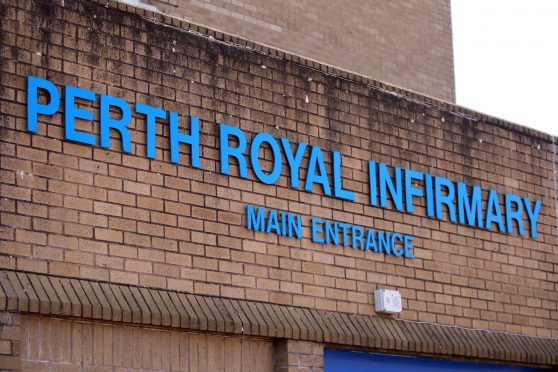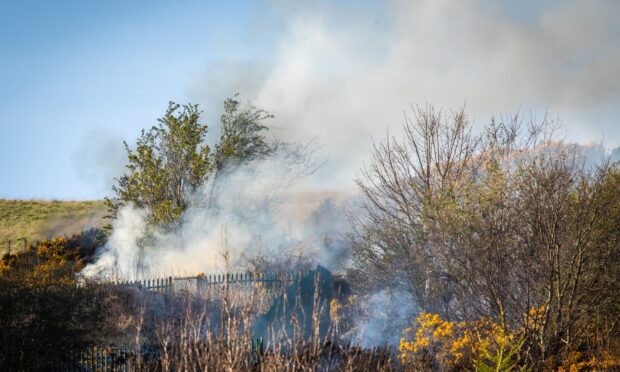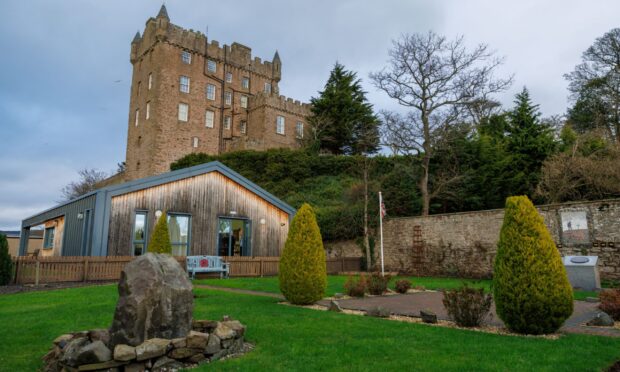Concerns have been raised over a plan to send Perth and Kinross stroke patients to Dundee to receive life-saving treatment.
NHS Tayside want to end its hyper-acute stroke admission service at Perth Royal Infirmary (PRI) and instead focus on a new centre of excellence at Ninewells.
Patients from Angus will also go to the Dundee hospital for immediate treatment before before being sent to their local acute stroke unit for ongoing care around 48 to 72 hours after admission, or when they are clinically stable enough to be moved.
The health authority says the scheme will “improve patient diagnosis and early intervention by moving to a 365-day, hyper-acute stroke admission model”.
However, Chest Heart and Stroke Scotland has raised the alarm over the time it will take to transport acutely ill people from rural areas — and the additional travel toll on elderly relatives.
A spokesman for the charity, which runs a stroke survivor clinic at PRI, said it would be seeking assurances from NHS Tayside that patient care will not be compromised.
Politicians have also voiced concerns that the move could be seen as a further downgrade of PRI.
Allan Cowie, Director of Services at Chest Heart & Stroke Scotland, said: “We have concerns about transfer times for acutely ill people from rural Perthshire and additional travel time for elderly relatives.
“We will be seeking clarity from NHS Tayside on how they plan to address these challenges in the design and future implementation of this approach.”
Conservative MSP Murdo Fraser said: “What is paramount in these decisions is the quality of patient care. However, that won’t stop concerns being raised locally in Perthshire about yet another service being lost to PRI and transferred to Ninewells Hospital.
“We previously saw the majority of maternity services moved from PRI to Ninewells along with paediatrics, pathology and emergency surgery. There are also implications for the length of time spent travelling to Ninewells Hospital from residents who live in North and West Perthshire.”
An NHS Tayside spokeswoman said the model aimed to reduce variation and improve patient diagnosis and early intervention by moving to a 24/7, 365 days per year stroke admission model for people from across the region.
“This would mean that all stroke patients would initially be admitted to Ninewells Hospital for treatment to ensure access to a specialist stroke physician,” she added.
“This would affect approximately one patient per day in Perth and Kinross.”
She said the proposal was supported by the Tayside Stroke Managed Clinical Network.
Supporting stroke care on one site was also a recommendation following the 2018 Scottish Government Stroke Improvement visit.
Dr Douglas Lowdon, Associate Medical Director for Medicine said, “Our plan is to create a centre of excellence for stroke care in Tayside and, ultimately, to be able to provide the best stroke care in Scotland.
“Creating a centre of excellence will not only be a huge benefit to patients from across Tayside and North Fife, but it will also mean we are able to attract and retain stroke trainees, physicians and nurses who all want to work in the best services.”
He went on: “The most important factor to consider is what we call the ‘door to needle’ time, which is the time it takes for the patient to access treatment from arriving at hospital. We are confident that by working in partnership with our colleagues in the Scottish Ambulance Service and through our planned public education programme, we will be able to reduce the ‘door to needle’ time for all patients across Tayside.
“This redesign of our stroke services is part of a bigger strategic plan that secures the integrated function of PRI and allows it to continue to offer acute medicine services to around 7000 people per year.”










